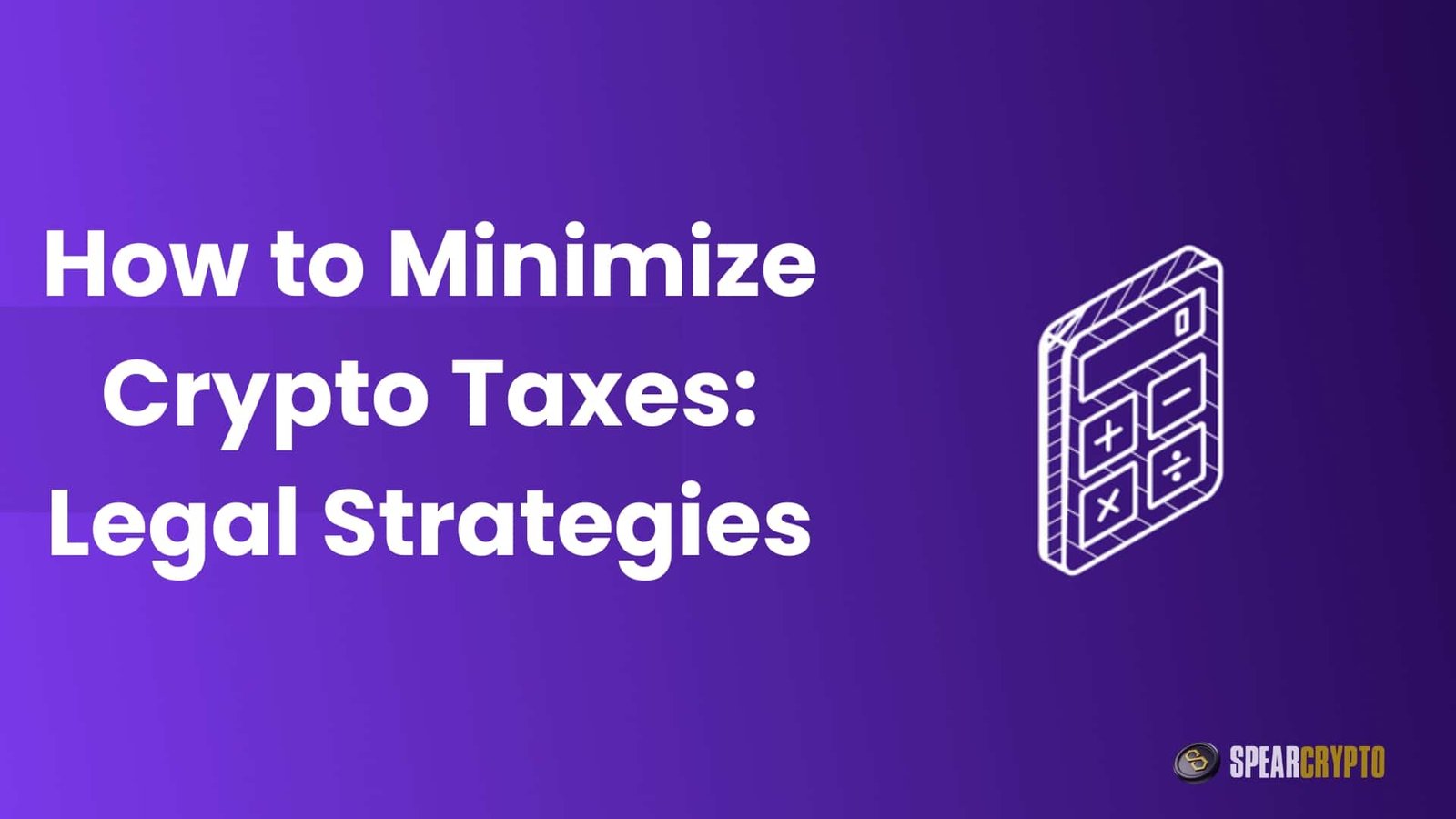
Cryptocurrency has become integral to the global financial landscape, with investors, traders, and enthusiasts continuously embracing digital assets. As cryptocurrencies like Bitcoin, Ethereum, and others gain wider adoption, governments worldwide increasingly focus on taxation to regulate this fast-evolving market. Understanding Crypto Taxes 101 is essential for staying compliant with tax laws and avoiding unnecessary penalties. This article will provide an updated overview of how crypto taxes work in 2024, covering key concepts, taxable events, tax calculation methods, and tips for efficient tax planning.
Understanding the Basics of Crypto Taxes 101
Cryptocurrency is considered property in many countries, including the United States, Canada, the United Kingdom, and several European nations. This classification means that crypto transactions are subject to capital gains tax (CGT), much like stocks, real estate, or other assets.
While each country has its tax code, common themes apply globally:
- Capital gains tax: When you sell or exchange cryptocurrency, you may owe capital gains tax on the profit.
- Income tax: If you receive cryptocurrency as payment through mining, staking, or airdrops, it is taxed as income.
- Transaction-based tax liabilities: Each crypto transaction (buying, selling, converting) may be considered a taxable event.
Key Taxable Events for Cryptocurrency in 2024
Several events trigger taxable transactions in the world of cryptocurrency. These events can be classified into two broad categories: capital gains and income.
Capital Gains Events
These events occur when there is a change in the value of your cryptocurrency holdings, resulting in a capital gain or loss:
- Selling cryptocurrency for fiat (e.g., USD, EUR): If you sell Bitcoin or any other cryptocurrency for fiat currency, you need to report capital gains or losses based on the difference between your acquisition cost and the sale price.
- Trading one cryptocurrency for another: When you exchange Bitcoin for Ethereum or another cryptocurrency, you are liable for taxes based on the value difference at the time of the transaction.
- Using cryptocurrency to purchase goods or services: When you use cryptocurrency to pay for a product or service, you must calculate any capital gain or loss based on the value difference between the acquisition and the time of the purchase.
Income Events
Income-related taxable events occur when you receive cryptocurrency like wages or earnings:
- Receiving cryptocurrency as payment: Whether you’re paid in Bitcoin or another cryptocurrency, the value at the time of receipt is considered income and is taxed accordingly.
- Crypto mining or staking rewards: The fair market value of cryptocurrency earned through mining or staking is treated as income and must be reported on your tax return.
- Airdrops and forks: If you receive free tokens via an airdrop or hard fork, the value of these tokens when they become available is considered income and must be reported.
How to Calculate Capital Gains
Calculating your capital gains from cryptocurrency transactions involves determining. The asset’s cost basis and the sale price or market value when disposing of the asset. Here’s how it works:
Cost Basis
The cost basis is the amount you originally paid to acquire the cryptocurrency. This includes the purchase price, transaction fees, and other associated costs.
Capital Gain/Loss
- Capital Gain: If you sell or dispose of your cryptocurrency for more than the cost basis, the difference is considered a capital gain.
- Capital Loss: If you sell or dispose of your cryptocurrency for less than the cost basis, the difference is a capital loss, which may be deductible from other gains.
Types of Capital Gains
There are two types of capital gains taxes depending on the length of time you held the cryptocurrency before selling:
- Short-term capital gains: If you held the cryptocurrency for one year or less before selling, the gain is taxed at your ordinary income tax rate.
- Long-term capital gains: If you hold the cryptocurrency for over a year, the gain is taxed at a lower preferential rate.
FIFO, LIFO, and Specific Identification Methods
When selling cryptocurrency, you need to determine which assets you are selling, as this affects the calculation of capital gains. There are three common methods to do this:
- FIFO (First-In, First-Out): The earliest acquired cryptocurrency is considered sold first.
- LIFO (Last-In, First-Out): The most recently acquired cryptocurrency is considered sold first.
- Specific Identification: You can specify which particular unit of cryptocurrency you’re selling, which may help you minimize your tax liability by selecting the units with the highest cost basis.
Income Tax on Cryptocurrency
Cryptocurrency received as income is subject to taxation based on the asset’s fair market value (FMV) at receipt. Examples include crypto received as payment for goods or services, staking rewards, or mined coins.
- Ordinary income: The value of the cryptocurrency received is taxed as ordinary income. For example, this could be subject to the United States federal, state, and local income tax.
- Self-employment tax: If you’re running a business or providing freelance services and are paid in cryptocurrency, you must also pay self-employment taxes.
Common Pitfalls to Avoid in Crypto Tax Reporting
Failing to Report Crypto Transactions
The increasing scrutiny of cryptocurrency means that tax authorities actively seek unreported gains. In the U.S., for instance, the IRS has begun issuing “letters of notice” to crypto holders and implementing measures to track digital asset transactions. They fail to report your cryptocurrency transactions, whether capital gains or income, which can result in severe penalties, including fines and interest on back taxes. In some cases, willful neglect may even lead to criminal charges.
Not Keeping Accurate Records
Keeping accurate records of your cryptocurrency transactions is critical for proper tax reporting. Each transaction must be accounted for, including the cryptocurrency’s date, type, amount, and value. Cryptocurrency exchanges may not always provide complete records, so tracking them yourself is essential. Tools like CoinTracker, Koinly, and others can help automate this process by connecting to your wallets and exchanges and providing accurate records for tax purposes.
Neglecting Foreign Accounts
You may be subject to additional reporting requirements if you hold cryptocurrency on foreign exchanges. In the U.S., for instance, you might need to report foreign accounts. That exceed certain thresholds via the Foreign Bank Account Report (FBAR) and FATCA (Foreign Account Tax Compliance Act) rules.
Crypto Tax Rules Across Different Jurisdictions
Different countries have varying tax laws when it comes to cryptocurrency. Below is an overview of how taxes work in a few major regions:
United States
The IRS treats cryptocurrency as property, subject to capital gains tax when sold, exchanged, or used to purchase goods and services. Crypto received as income is subject to income tax. U.S. taxpayers must report all crypto transactions on their annual tax returns, and the IRS has become increasingly vigilant about compliance.
United Kingdom
In the U.K., cryptocurrency is treated as an asset for tax purposes. Capital gains tax applies when you sell or dispose of cryptocurrency, while income tax is owed on crypto earned through mining, staking, or payment. Her Majesty’s Revenue and Customs (HMRC) has issued clear guidance on crypto tax treatment, and taxpayers must maintain records of their crypto transactions.
Canada
The Canada Revenue Agency (CRA) treats cryptocurrency as a commodity. Crypto transactions, including selling and exchanging, are subject to capital gains tax, while mining, staking, and crypto received as payment are considered income. Canadians must report all cryptocurrency transactions on their tax returns, and the CRA has actively pursued compliance.
European Union
Taxation on cryptocurrency varies across the European Union. For example, in Germany, if you hold cryptocurrency for more than one year, it is exempt from capital gains tax, while in France, a flat tax rate is applied to crypto transactions. Overall, EU countries tend to align with the approach of treating cryptocurrency as property, and crypto received as income is generally taxable.
How to Minimize Crypto Taxes: Legal Strategies
Tax planning can help you reduce your crypto tax liability, but it’s important to employ legal strategies based on laws. Below are a few common methods to reduce your crypto taxes:
Tax-Loss Harvesting
Tax-loss harvesting is thlling assets at a loss to offset capital gains from other investments. If you have realized significant capital gains from your crypto investments, selling underperforming cryptocurrencies can help reduce your overall tax liability. In some jurisdictions, losses can offset short-term and long-term gains and even be carried forward to future tax years.
Holding for the Long Term
In many countries, long-term capital gains are taxed lower than short-term gains. You can reduce your debt by holding cryptocurrency for over a year before selling.
Charitable Donations
Donating cryptocurrency to a qualified charity can provide tax benefits. You can often deduct the donation’s fair market value and avoid paying capital gains tax on the appreciated amount.
Retirement Accounts
In some jurisdictions, it is possible to hold cryptocurrency in tax-advantaged retirement accounts. However, such as Individual Retirement Accounts (IRAs) in the U.S. Gains on these accounts are not taxed until withdrawal, allowing for tax-free growth over time.
Future of Crypto Taxes
Tax regulations are expected to become more comprehensive as the cryptocurrency industry evolves. Governments and tax authorities worldwide are actively exploring ways to tighten tax compliance in the crypto space.
- Global coordination: Countries will likely increase collaboration to share information and track crypto transactions across borders. This could lead to more stringent reporting requirements and fewer opportunities for tax avoidance.
- Automated tax reporting: As crypto tax software becomes more sophisticated, taxpayers will find it easier to comply with tax laws. Many exchanges are also improving their tax reporting capabilities, making it simpler to track gains and losses.
Conclusion
Understanding cryptocurrency taxes is crucial for anyone involved in the crypto space. With evolving regulations and increased scrutiny from tax authorities, staying compliant is more important than ever. By keeping accurate records, understanding taxable events, and employing legal tax minimization strategies, you can ensure. That you stay on the right side of the law while maximizing your returns. As tax rules vary from country to country, it’s important to consult with a tax professional or use specialized tax software to navigate. The complexities of crypto taxes in 2024.
[sp_easyaccordion id=”2971″]







